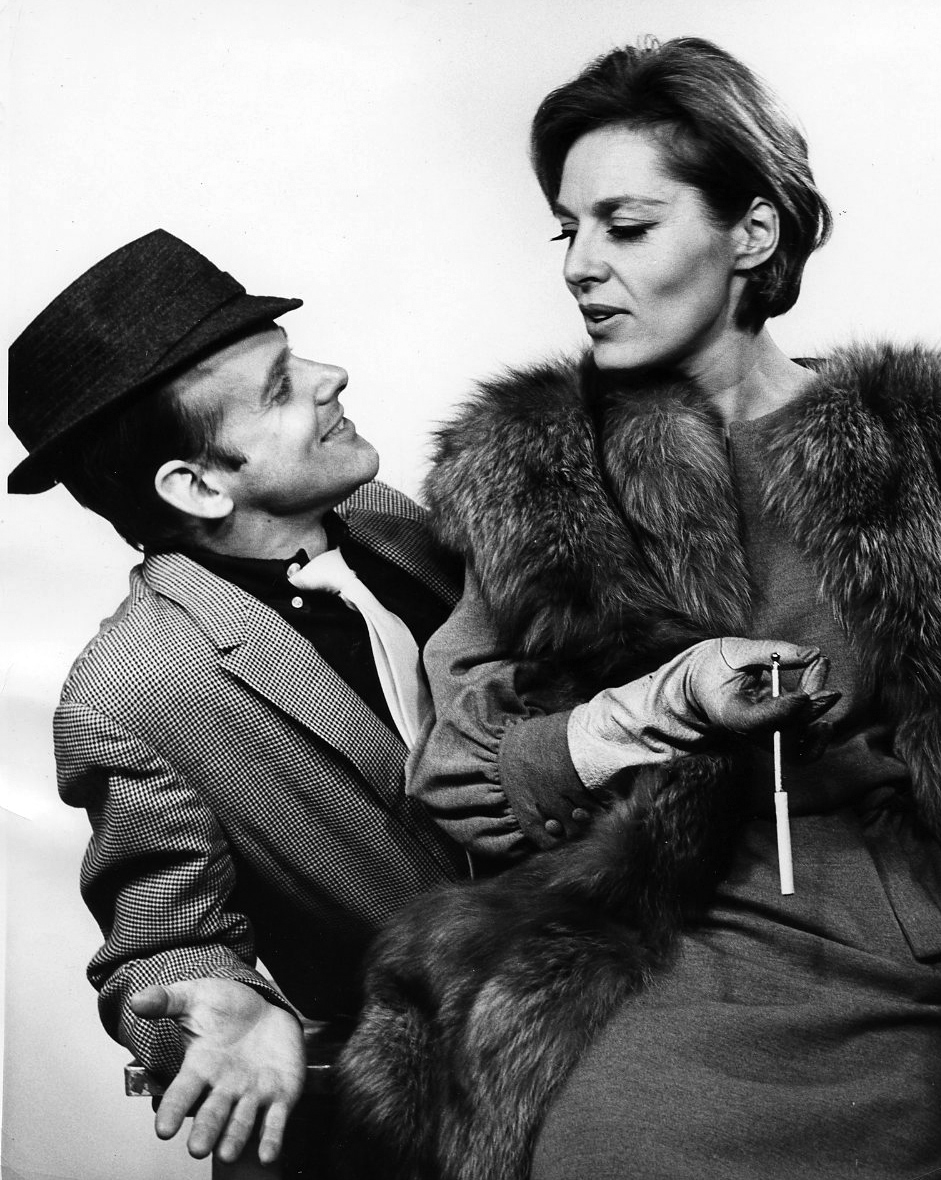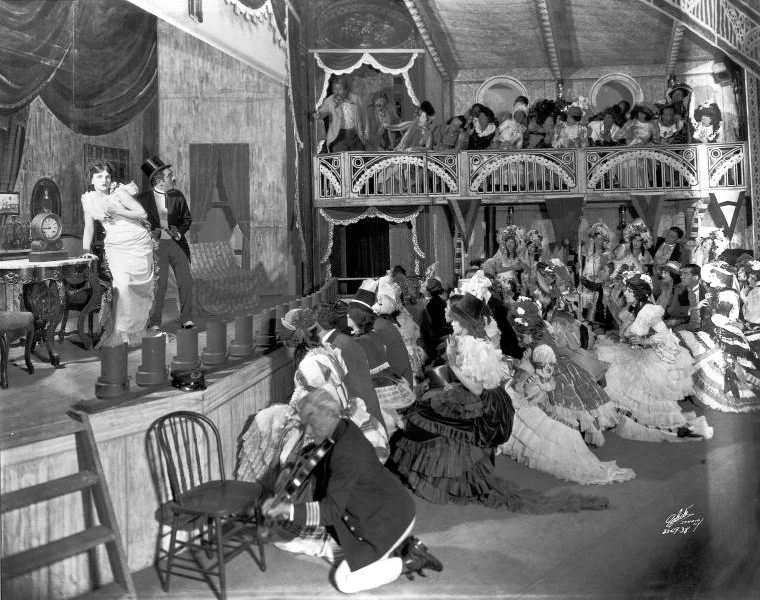|
Show Tunes
A show tune is a song originally written as part of the score of a work of musical theatre or musical film, especially if the piece in question has become a standard, more or less detached in most people's minds from the original context. Though show tunes vary in style, they do tend to share common characteristics—they usually fit the context of a story being told in the original musical, they are useful in enhancing and heightening choice moments. A particularly common form of show tune is the "I Want" song, which composer Stephen Schwartz noted as being particularly likely to have a lifespan outside the show that spawned it. Show tunes were a major venue for popular music before the rock and roll and television era; most of the hits of such songwriters as Jerome Kern, Cole Porter, and George Gershwin came from their shows. (Even into the television and rock era, a few stage musicals managed to turn their show tunes into major pop music hits, sometimes aided by fil ... [...More Info...] [...Related Items...] OR: [Wikipedia] [Google] [Baidu] |
Oklahoma!
''Oklahoma!'' is the first musical written by the duo of Rodgers and Hammerstein. The musical is based on Lynn Riggs' 1931 play, ''Green Grow the Lilacs''. Set in farm country outside the town of Claremore, Indian Territory, in 1906, it tells the story of farm girl Laurey Williams and her courtship by two rival suitors, cowboy Curly McLain and the sinister and frightening farmhand Jud Fry. A secondary romance concerns cowboy Will Parker and his flirtatious fiancée, Ado Annie. The original Broadway production opened on March 31, 1943. It was a box office hit and ran for an unprecedented 2,212 performances, later enjoying award-winning revivals, national tours, foreign productions and an Oscar-winning 1955 film adaptation. It has long been a popular choice for school and community productions. Rodgers and Hammerstein won a special Pulitzer Prize for ''Oklahoma!'' in 1944. This musical, building on the innovations of the earlier ''Show Boat'', epitomized the development of t ... [...More Info...] [...Related Items...] OR: [Wikipedia] [Google] [Baidu] |
Babes In Arms
''Babes in Arms'' is a 1937 coming-of-age musical comedy with music by Richard Rodgers, lyrics by Lorenz Hart and book by Rodgers and Hart. It concerns a group of small-town Long Island teenagers who put on a show to avoid being sent to a work farm by the town sheriff when their actor parents go on the road for five months in an effort to earn some money by reviving vaudeville. Several songs in ''Babes in Arms'' became pop standards, including the title song, " Where or When", " My Funny Valentine", " The Lady Is a Tramp", " Johnny One Note" and "I Wish I Were in Love Again". The film version, released in 1939, starred Judy Garland and Mickey Rooney and was directed by Busby Berkeley. Its radically revised plot retained only two songs from the original stage version—"Where or When" and "Babes in Arms". The film is credited with popularizing the "kids putting on a musical for charity" trope. The original version had strong political overtones with discussions of Nietzsche, ... [...More Info...] [...Related Items...] OR: [Wikipedia] [Google] [Baidu] |
Pal Joey (musical)
''Pal Joey'' is a 1940 musical with a book by John O'Hara and music and lyrics by Richard Rodgers and Lorenz Hart. The musical is based on a character and situations O'Hara created in a series of short stories published in ''The New Yorker'', which he later published in novel form. The title character, Joey Evans, is a manipulative small-time nightclub performer whose ambitions lead him into an affair with the wealthy, middle-aged and married Vera Simpson. It includes two songs that have become standards: " I Could Write a Book" and " Bewitched, Bothered and Bewildered". The original 1940 Broadway production was directed by George Abbott and starred Vivienne Segal and Gene Kelly. Though it received mixed reviews, the show ran for 10 months, the third-longest run of any Rodgers and Hart musical. There have been several revivals since, including a 2008–09 Broadway run, and a 1957 film adaptation starring Frank Sinatra, Rita Hayworth and Kim Novak. Background Author J ... [...More Info...] [...Related Items...] OR: [Wikipedia] [Google] [Baidu] |
Lorenz Hart
Lorenz Milton Hart (May 2, 1895 – November 22, 1943) was an American lyricist and half of the Broadway songwriting team Rodgers and Hart. Some of his more famous lyrics include " Blue Moon", " The Lady Is a Tramp", "Manhattan", " Bewitched, Bothered and Bewildered", and " My Funny Valentine". Life and career Hart was born in Harlem, New York City, the elder of two sons, to Jewish immigrant parents, Max M. and Frieda (Isenberg) Hart, of German background. Through his mother, he was a great-grandnephew of the German poet Heinrich Heine. His father, a business promoter, sent Hart and his brother to private schools. (His brother, Teddy Hart, also went into theatre and became a musical comedy star. Teddy Hart's wife, Dorothy Hart, wrote a biography of Lorenz Hart.) Hart received his early education from Columbia Grammar School and entered Columbia College in 1913, before switching to Columbia University School of Journalism, where he attended for two years.< ... [...More Info...] [...Related Items...] OR: [Wikipedia] [Google] [Baidu] |
Rose-Marie
''Rose-Marie'' is an operetta-style musical with music by Rudolf Friml and Herbert Stothart, and book and lyrics by Otto Harbach and Oscar Hammerstein II. The story is set in the Canadian Rocky Mountains and concerns Rose-Marie La Flemme, a French Canadian girl who loves miner Jim Kenyon. When Jim falls under suspicion for murder, her brother Emile plans for Rose-Marie to marry Edward Hawley, a city man. The work premiered on Broadway at the Imperial Theatre on September 2, 1924, running for 557 performances. It was the longest-running Broadway musical of the 1920s until it was surpassed by ''The Student Prince'' (1926). It was then produced at the Theatre Royal, Drury Lane in London in 1925, enjoying another extraordinary run of 581 performances. It was filmed in 1928, in 1936 and again in 1954. The best-known song from the musical is " Indian Love Call". It became Jeanette MacDonald and Nelson Eddy's "signature song". Several other numbers have also become standards, incl ... [...More Info...] [...Related Items...] OR: [Wikipedia] [Google] [Baidu] |
Otto Harbach
Otto Abels Harbach, born Otto Abels Hauerbach (August 18, 1873 – January 24, 1963) was an American lyricist and librettist of nearly 50 musical comedies and operettas. Harbach collaborated as lyricist or librettist with many of the leading Broadway composers of the early 20th century, including Jerome Kern, Louis Hirsch, Herbert Stothart, Vincent Youmans, George Gershwin, and Sigmund Romberg. Harbach believed that music, lyrics, and story should be closely connected, and, as Oscar Hammerstein II's mentor, he encouraged Hammerstein to write musicals in this manner. Harbach is considered one of the first great Broadway lyricists, and he helped raise the status of the lyricist in an age more concerned with music, spectacle, and stars. Some of his more famous lyrics are " Smoke Gets in Your Eyes", " Indian Love Call" and " Cuddle up a Little Closer, Lovey Mine". Early life and education Otto Abels Hauerbach was born on August 18, 1873, in Salt Lake City, Utah to Danish immigran ... [...More Info...] [...Related Items...] OR: [Wikipedia] [Google] [Baidu] |
Herbert Stothart
Herbert Pope Stothart (September 11, 1885February 1, 1949) was an American songwriter, arranger, conductor, and composer. He was also nominated for twelve Academy Awards, winning Best Original Score for ''The Wizard of Oz''. Stothart was widely acknowledged as a member of the top tier of Hollywood composers during the 1930s and 1940s. Life and career Herbert Stothart was born in Milwaukee, Wisconsin. He studied music in Europe and at the University of Wisconsin–Madison, where he later taught. Stothart was first hired by producer Arthur Hammerstein to be a musical director for touring companies of Broadway shows, and was soon writing music for the producer's nephew Oscar Hammerstein II. He composed music for the famous operetta, '' Rose-Marie''. Stothart soon joined with many famous composers including Vincent Youmans, George Gershwin and Franz Lehár. Stothart achieved pop- chart success with standards like “Cute Little Two by Four”, “Wildflower”, “Bambalina”, ... [...More Info...] [...Related Items...] OR: [Wikipedia] [Google] [Baidu] |
Rudolf Friml
Charles Rudolf Friml"Mrs. Rudolf Friml to Receive Divorce" ''The New York Times'', July 25, 1915, p. 15 (December 7, 1879 – November 12, 1972) was a Czech-born composer of operettas, musicals, songs and piano pieces, as well as a . After musical training and a brief performing career in his native , Fr ... [...More Info...] [...Related Items...] OR: [Wikipedia] [Google] [Baidu] |
Show Boat
''Show Boat'' is a musical theatre, musical with music by Jerome Kern and book and lyrics by Oscar Hammerstein II. It is based on Edna Ferber's best-selling 1926 Show Boat (novel), novel of the same name. The musical follows the lives of the performers, stagehands and dock workers on the ''Cotton Blossom'', a Mississippi River showboat, show boat, over 40 years from 1887 to 1927. Its themes include racial prejudice and tragic, enduring love. The musical contributed such classic songs as "Ol' Man River", "Make Believe (Jerome Kern song), Make Believe", and "Can't Help Lovin' Dat Man". The musical was first produced in 1927 by Florenz Ziegfeld. The premiere of ''Show Boat'' on Broadway theatre, Broadway was an important event in the history of American musical theatre. It "was a radical departure in musical storytelling, marrying spectacle with seriousness", compared with the trivial and unrealistic operettas, light Edwardian musical comedy, musical comedies and "Follies"-type mus ... [...More Info...] [...Related Items...] OR: [Wikipedia] [Google] [Baidu] |
The Sound Of Music
''The Sound of Music'' is a musical with music by Richard Rodgers, lyrics by Oscar Hammerstein II, and a book by Howard Lindsay and Russel Crouse. It is based on the 1949 memoir of Maria von Trapp, ''The Story of the Trapp Family Singers''. Set in Austria on the eve of the '' Anschluss'' in 1938, the musical tells the story of Maria, who takes a job as governess to a large family while she decides whether to become a nun. She falls in love with the children, and eventually their widowed father, Captain von Trapp. He is ordered to accept a commission in the German navy, but he opposes the Nazis. He and Maria decide on a plan to flee Austria with the children. Many songs from the musical have become standards, including " Edelweiss", " My Favorite Things", " Climb Ev'ry Mountain", "Do-Re-Mi", and the title song " The Sound of Music". The original Broadway production, starring Mary Martin and Theodore Bikel, opened in 1959 and won five Tony Awards, including Best Musical, o ... [...More Info...] [...Related Items...] OR: [Wikipedia] [Google] [Baidu] |
Flower Drum Song
''Flower Drum Song'' was the eighth musical by the team of Rodgers and Hammerstein. It is based on the 1957 novel, '' The Flower Drum Song'', by Chinese-American author C. Y. Lee. It premiered on Broadway in 1958 and was then performed in the West End and on tour. It was adapted for a 1961 musical film. After their extraordinary early successes, beginning with ''Oklahoma!'' in 1943, Richard Rodgers and Oscar Hammerstein II had written two musicals in the 1950s that did not do well and sought a new hit to revive their fortunes. Lee's novel focuses on a father, Wang Chi-yang, a wealthy refugee from China, who clings to traditional values in San Francisco's Chinatown. Rodgers and Hammerstein shifted the focus of the musical to his son, Wang Ta, who is torn between his Chinese roots and assimilation into American culture. The team hired Gene Kelly to make his debut as a stage director with the musical and scoured the country for a suitable Asian – or at least, plausibly Asian ... [...More Info...] [...Related Items...] OR: [Wikipedia] [Google] [Baidu] |

.jpg)


